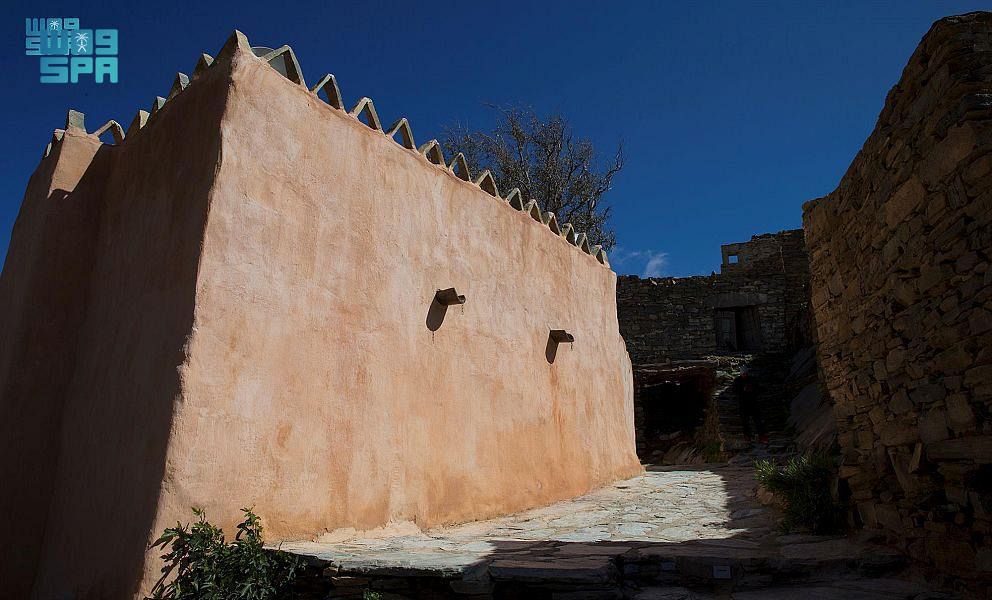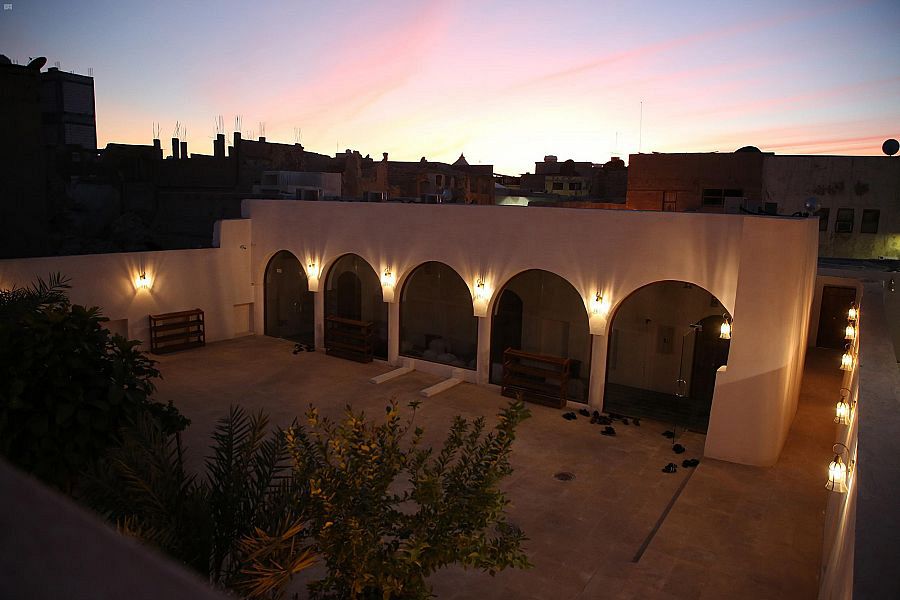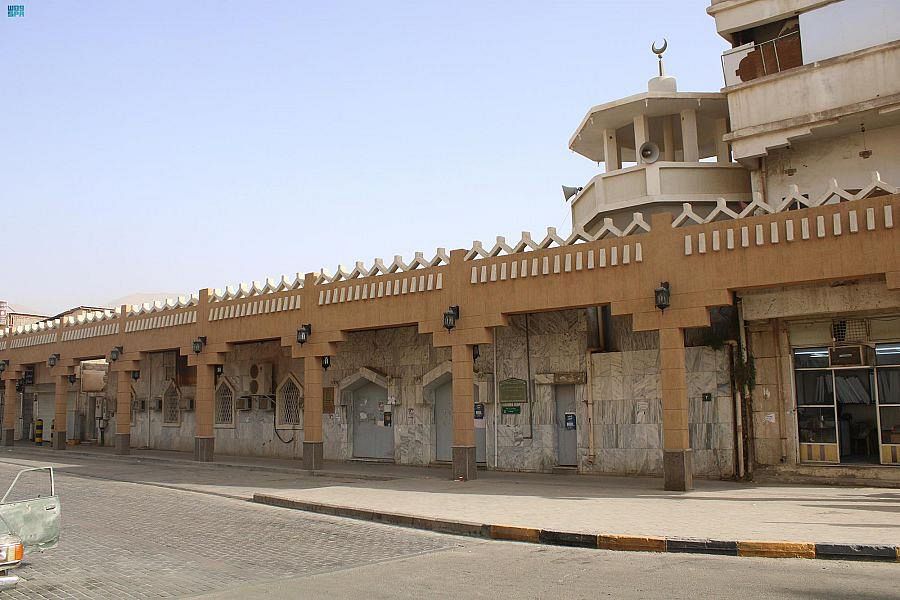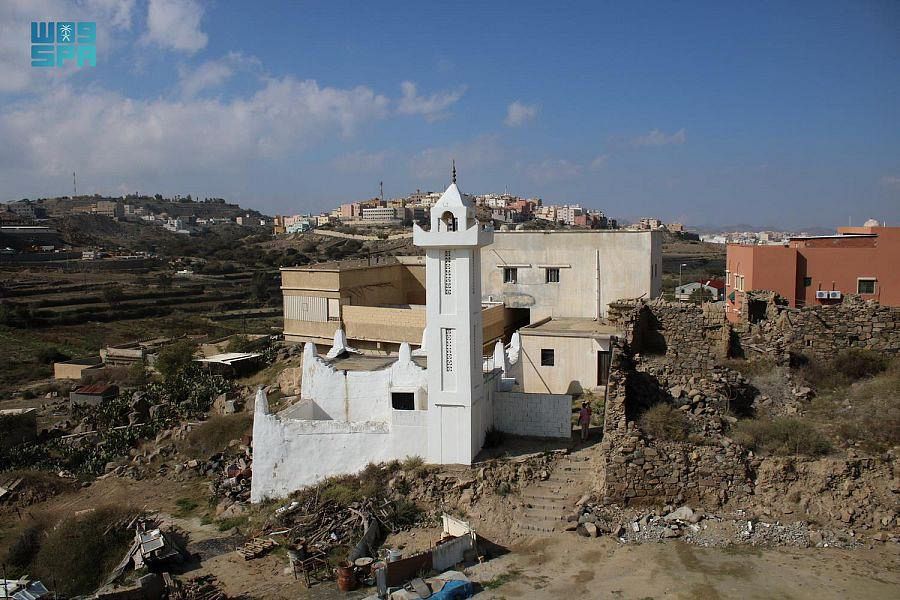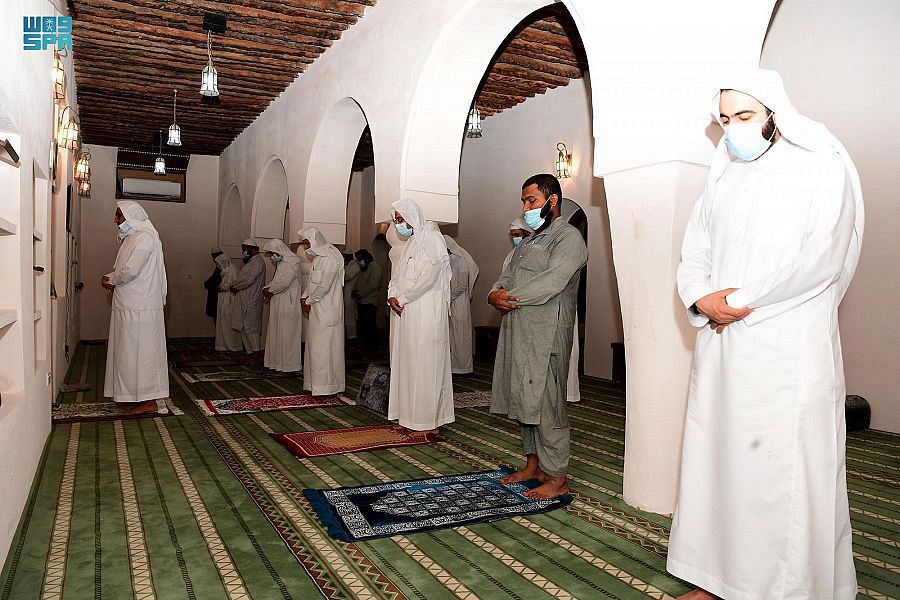
Dammam, Apr. 15, 2021, SPA -- In an atmosphere of faith full of spirituality and reverence and while adhering to all precautionary measures, worshipers return to Sheikh Abu Bakr Mosque in Al-Ahsa Governorate of the Eastern Province of the Kingdom of Saudi Arabia to perform prayers, after the mosque has been rehabilitated as part of Prince Muhammad bin Salman's project to develop historical mosques in the Kingdom, a report said here today.
Abu Bakr Mosque is one of the oldest heritage buildings in the middle of the old Al-Kut neighborhood in Al-Hofuf, Al-Ahsa Governorate, about 200 meters east of Al-Kut cemetery, and about 390 meters southwest of Ibrahim Palace.
Distinguished by its construction in a unique architectural style, Abu Bakr Mosque was built of mud, pebbles and logs of palm wood. Before its reconstruction, the area of the mosque was about 565 sq.m., accommodating some 125 worshipers. The mosque premises consist of a prayer house with an area 5.65 * 13.7 m., and an external square with an area of 15.85 * 16.35 m., part of which is shaded, in addition to a warehouse consisting of two rooms, together with an area of 12.5 sq.m., and a residence for the Imam with an area of about 127 sq.m., as well as bathrooms with a total area of 40 sq.m.
Following the rehabilitation and reconstruction works which is consisted of a house of prayer, the sarah, a warehouse, the imam’s residence, a bedroom, a kitchen, a prayer room for women, toilets, separate ablution zones for men and women, a well and water basin, the mosque's capacity increased to easily accommodate 166 worshipers.
The construction in history of Abu Bakr Mosque goes back to more than 300 years, as Sheikh Ahmed Abu Ali sponsored its foundation, which also included the school and ribat of Abu Bakr, located southwest of the mosque, considered a beacon for Islamic religious teachings, as many students from the Gulf countries, India and Pakistan flocked to it at the time.
Many Imams belonging to Abu Bakr family took turns to lead the mosque, including Sheikh bin Muhammad Omar al-Mulla, known as Abu Bakr al-Kabeer, Sheikh Abdullah al-Mulla, known as Abu Bakr al-Sagheer, and Sheikh Ahmed Abu Bakr al-Mulla, who was followed by his sons.
--SPA
01:57 LOCAL TIME 22:57 GMT
0009
www.spa.gov.sa/w1543309




